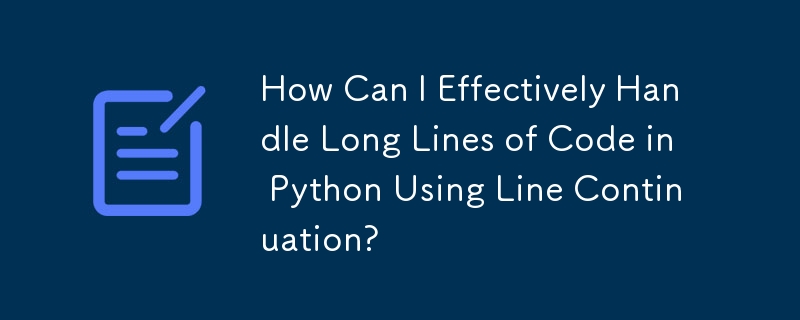Home >Backend Development >Python Tutorial >How Can I Effectively Handle Long Lines of Code in Python Using Line Continuation?
How Can I Effectively Handle Long Lines of Code in Python Using Line Continuation?
- Susan SarandonOriginal
- 2024-12-25 19:58:17821browse

Line Breaks and Line Continuation in Python
In Python, when dealing with long lines of code, you may encounter the need to break them into multiple lines for readability or code organization. This process is known as line continuation.
Consider the following code:
e = 'a' + 'b' + 'c' + 'd'
To write this in two lines, you can simply split the expression using the line continuation operator, a backslash ():
e = 'a' + 'b' + \
'c' + 'd'
However, there are other ways to achieve line continuation, depending on the situation.
Additional Line Continuation Options
- Argument Continuation: You can continue arguments on the next line without using any special operator.
a = dostuff(blahblah1, blahblah2, blahblah3, blahblah4, blahblah5,
blahblah6, blahblah7)
- Explicit Line Break: You can use an explicit line break before or after the opening parentheses of a statement.
if (a == True
and b == False):
- Parenthesis Continuation: You can enclose the expression in parentheses and split it across multiple lines.
a = ('1' + '2' + '3' +
'4' + '5')
Considerations
The preferred method for line continuation is to use implicit continuation with parentheses, as it is more concise and readable. However, in certain cases, other methods may be more appropriate.
The above is the detailed content of How Can I Effectively Handle Long Lines of Code in Python Using Line Continuation?. For more information, please follow other related articles on the PHP Chinese website!

